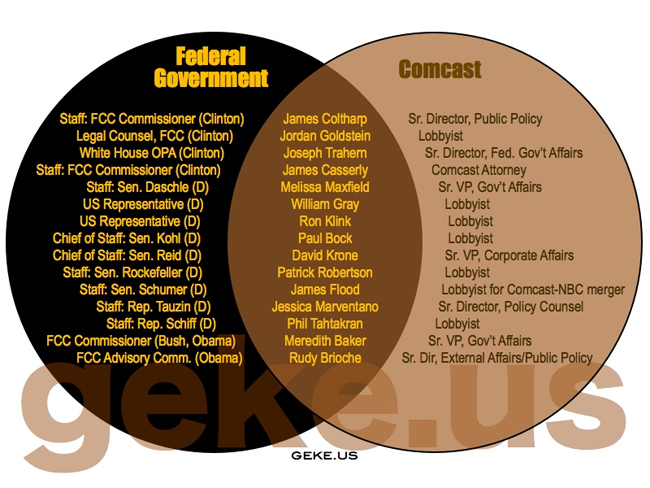Image


 Reforming this system is a deep, seemingly intractable problem. But for those looking for answers, a good place to start is with the work of Lawrence Lessig. I just finished his Republic, Lost, which offers a grand tour of the problems resulting from the present system of campaign finance.
You can also see a number of his presentations here.
His organization, the Rootstrikers aim to get to the root of problems rather than being distracted by trying to fix symptoms of deeper problems. This is precisely what we do with our focus on community networks.
Many focus solely on resolving digital divide issues, improving rural access to the Internet, lowering the cost of broadband, or the various other problems that result from narrowly-focused private corporations owning and controlling essential communications infrastructure with inadequate regulations.
Reforming this system is a deep, seemingly intractable problem. But for those looking for answers, a good place to start is with the work of Lawrence Lessig. I just finished his Republic, Lost, which offers a grand tour of the problems resulting from the present system of campaign finance.
You can also see a number of his presentations here.
His organization, the Rootstrikers aim to get to the root of problems rather than being distracted by trying to fix symptoms of deeper problems. This is precisely what we do with our focus on community networks.
Many focus solely on resolving digital divide issues, improving rural access to the Internet, lowering the cost of broadband, or the various other problems that result from narrowly-focused private corporations owning and controlling essential communications infrastructure with inadequate regulations.The interconnected nature of the Internet fostered the growth of online communities such as Tumblr, Twitter, and Facebook. These sites host our humdrum daily interactions and serve as a public soapbox for our political voice. Both the PROTECT IP Act and SOPA would create a national firewall by censoring the domain names of websites accused of hosting infringing copyrighted materials. This legislation would enable law enforcement to take down the entire tumblr.com domain due to something posted on a single blog. Yes, an entire, largely innocent online community could be punished for the actions of a tiny minority. If you think this scenario is unlikely, consider what happened to Mooo.com earlier this year. Back in February, the Department of Justice and Department of Homeland Security seized 10 domains during a child-porn crackdown called “Operation Protect Our Children.” Along with this group of offenders, 84,000 more entirely innocent sites were tagged with the following accusatory splash page: “Advertisement, distribution, transportation, receipt, and possession of child pornography constitute federal crimes that carry penalties for first time offenders of up to 30 years in federal prison, a $250,000 fine, forfeiture and restitution." Their only crime was guilt by association: They were all using the Mooo.com domain.From our point of view, what is most interesting is not who is pushing this bill (Hollywood and the usual suspects that tried to kill the VCR because it would obviously destroy the movie industry) but who is not resisting.